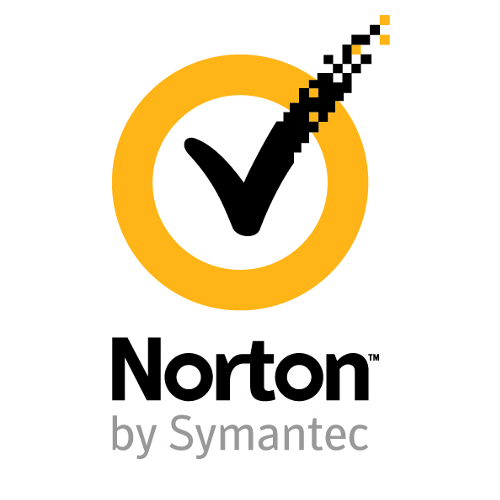
- The Norton Wi-Fi Risk Report has revealed that 66 percent of Australians are acting unsafely when connecting to public Wi-Fi, yet 60 percent believe their information is safe
- Many are unsure or don’t know whether they’re using a secure public Wi-Fi network
 Consumers are unable to resist a strong, free Wi-Fi network and their online behaviours may be placing their personal information at risk, according to Norton by Symantec’s 2017 Norton Wi-Fi Risk Report.
Consumers are unable to resist a strong, free Wi-Fi network and their online behaviours may be placing their personal information at risk, according to Norton by Symantec’s 2017 Norton Wi-Fi Risk Report.
Australians value the privacy of their photos the most, and would be more angry if hackers accessed and posted their private photos online over their financial information. While Australians are protective of their data, most of them don’t take precautionary measures to protect themselves, or know when they’re at risk of data breaches when accessing public Wi-Fi.
“There is a deep divide between what people think is safe when it comes to using public Wi-Fi versus the reality,” said Mark Gorrie, Director of ANZ Norton Business Unit. “What someone thinks is private on their personal device can easily be accessed by cybercriminals through unsecured Wi-Fi Networks or even apps with privacy vulnerabilities.”
The Norton Wi-Fi Risk Report surveyed more than 1,000 Australians to learn about their public Wi-Fi practices and perceptions. Many of the findings show Australians are aware of the risks of public Wi-Fi, but are not necessarily changing their behaviours. Australian specific highlights include:
Australians are big risk takers when it comes to using public Wi-Fi
- 60 percent said they feel safe when using public Wi-Fi, despite over half of them (51 percent) not using a VPN when connected.
- 83 percent have used a public Wi-Fi network to log into personal email accounts, check bank balances and/or share photos and videos.
- Over half (59 percent) can’t tell if a public Wi-Fi network is secure, with respondents saying they’re either unsure or don’t know (23 and 36 percent, respectively).
Australians would be more angered if hackers posted their photos online, rather than their financial information.
- 43 percent of Australians would be angered if a hacker stole photos from their device, followed by private conversations (42 percent) and banking details (39 percent).
- Conversely, the disclosure of bank details and financial information is the most worrying (41 percent), followed by children’s location and academic details, and browser history (both 32 percent).
- Similarly, disclosure of financial information is horrifying to over half (51 percent) of Australians, followed by closest secrets (40 percent); children’s location and academic details (30 percent); and online dating profile and relationship status (17 percent).
- Interestingly, only less than half (47 percent) would feel embarrassed if their personal information from their device was posted publicly online. 19 percent would be embarrassed if it were their closest secrets; 14 percent in the case of intimate and personal photos; and 15 percent if it were their browser history.
Wi-Fi Access Is a Must When Traveling
Australians are unable to resist access to a strong and free Wi-Fi network despite the risks. This is especially true while travelling.
- Australians say access to a strong Wi-Fi network is a deciding factor when choosing a hotel (59 percent), airline (29 percent), and transport hub (28 percent).
Help Ensure Your Personal Information Doesn’t Fall into the Wrong Hands
Despite the need for access to a strong, free Wi-Fi connection, there are simple steps consumers can take to help protect their information online:
- Use Security Software: One of the best ways to protect your information online is to use a Virtual Private Network (VPN) from a trusted vendor such as Symantec’s Norton WiFi Privacy. VPNs provide a “secure tunnel” that encrypts data being sent and received between your device and the internet.
- Look for HTTPS: Many companies use secure websites — HTTPS (Hypertext Transfer Protocol Secure) — to provide online security. You can tell if a website is secure if it has “https” in its URL and has a small lock symbol next to it. However, even though the website itself might be safe, your personal information could be vulnerable if your network connection isn’t secure.
- Sharing Less is Best: Think twice before entering any type of personal information – from passwords, to financial details and photos – over public Wi-Fi networks. Even if you’re not actively sharing the information, your device may be doing so for you. Many devices are programmed to automatically seek connections to other devices on the same network, which could cause your files to be vulnerable. Be sure to disable sharing on your devices to ensure what’s yours stays yours.
Norton Wi-Fi Risk Report Methodology
The Norton Wi-Fi Risk Report is an online survey of 15,532 adults ages 18+ who use Wi-Fi across 15 countries, commissioned by Norton by Symantec and produced by research firm Reputation Leaders through international online panel company Research Now. The margin of error for the total sample is 0.8 percent at a 95 percent confidence level. The Australian sample reflects input from 1,000 Australian adults ages 18+ who use Wi-Fi. The margin of error is 3.1 percent for the total Australian sample. Data was collected from May 18th to June 5th, 2017 by Research Now.
About Symantec
Symantec Corporation, the world’s leading cyber security company, helps organisations, governments and people secure their most important data wherever it lives. Organisations across the world look to Symantec for strategic, integrated solutions to defend against sophisticated attacks across endpoints, cloud and infrastructure. Likewise, a global community of more than 50 million people and families rely on Symantec’s Norton and LifeLock product suites to protect their digital lives at home and across their devices. Symantec operates one of the world’s largest civilian cyber intelligence networks, allowing it to see and protect against the most advanced threats. For additional information, please visit https://au.norton.com/ or connect with us on Facebook, Twitter, and LinkedIn.




